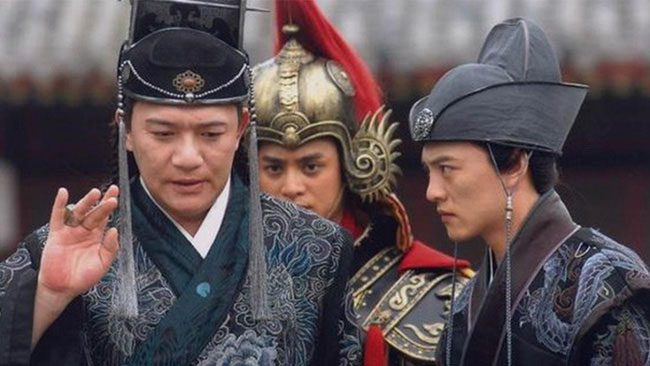Through martial arts novels and cinematic works, it is clear that many masters originated from eunuchs.
In the novel “The Smiling, Proud Wanderer” by the late author Jin Yong, the most profound and fearsome martial art is the “Quy Hoa Bao Dien” (Return of the Flower Treasure Classic). This martial art was created by a eunuch, Dongfang Bubai, who became invincible in the martial world thanks to this technique. Although he never served in the palace as a eunuch, physiologically speaking, Dongfang Bubai bears a close resemblance to one. Meanwhile, in “The Deer and the Cauldron,” the skilled eunuch Hai Daifu is described by Jin Yong as a master of profound martial arts within the court.
In the work “Who Will Be the Hero” by author On Thuy An, the highest martial artist is Mei Gonggong, who is also a eunuch.
In cinematic works, notable eunuchs with formidable martial arts skills include Cao Thieu Kham, Vu Hoa Dien, and Gia Kim Cuc.
All the aforementioned characters possess not only strong martial arts skills but also cunning and malicious traits. So, are eunuchs truly as formidable as depicted?
In Chinese history, there have been numerous infamous eunuchs who have become well-known, such as Zhao Gao, Zhang Yang, Li Fuguo, Wei Zhongxian, and Li Lianying.
However, the general perception of these historical figures tends to be less than flattering, characterized by treachery and deceit rather than martial prowess.
In the early Ming Dynasty, the Eastern Bureau, abbreviated as Dong Xuang, was uniquely established by the Yongle Emperor Zhu Di in 1420. This organization was permitted to set up its headquarters next to the Donghua Gate of Yanjing (modern-day Beijing). Having seized the throne from his nephew, the Yongle Emperor was as suspicious as his predecessor, the Hongwu Emperor. To suppress opposing political forces, he decided to establish the Eastern Bureau.

The Eastern Bureau is a secret agency to suppress opposing political forces. Image: Sohu
This was a secret agency, managed by the inner court, responsible for overseeing everything from the cabinet to the military, officials, intellectuals, and prominent scholars, as well as all power institutions of the court. If the investigation revealed minor offenses, the Eastern Bureau had full authority to handle the matter without involving the judicial system. For serious offenses, they would report directly to the emperor for his decision. Empowered with immense authority, the Eastern Bureau could interrogate any noble or royal.
When Zhu Jian Shen succeeded the throne, he established the Western Bureau, which had similar functions and characteristics to the Eastern Bureau.
However, those who truly knew martial arts and were responsible for assassination and apprehension were the “Jin Yi Wei” – members of the Imperial Guard, who were not eunuchs at all.
During the Qing Dynasty, the court also had a group of eunuchs known as the “Ji Yong Eunuchs.” According to historical records, among the 500 eunuchs working at the Yuanmingyuan (Garden of Perfect Brightness), 60 were skilled in martial arts, known as the “Ji Yong Eunuchs of the Sixty Names.”
In 1860, during the Anglo-French invasion of Yuanmingyuan, 20 Ji Yong Eunuchs, under the command of an eighth-rank leader, fought with the spirit of “fearless in danger, charging forward vigorously,” injuring numerous enemy soldiers.
However, this act was akin to “throwing eggs against stones,” and faced with the overwhelming imperial forces, these 20 eunuchs heroically sacrificed themselves.
In fact, throughout Chinese history, there have been many recorded instances of military generals who originated from eunuchs.


















































